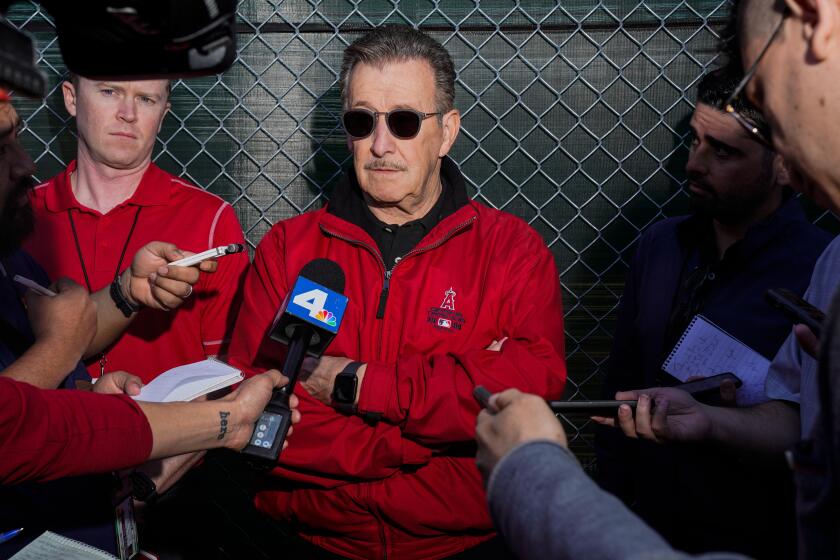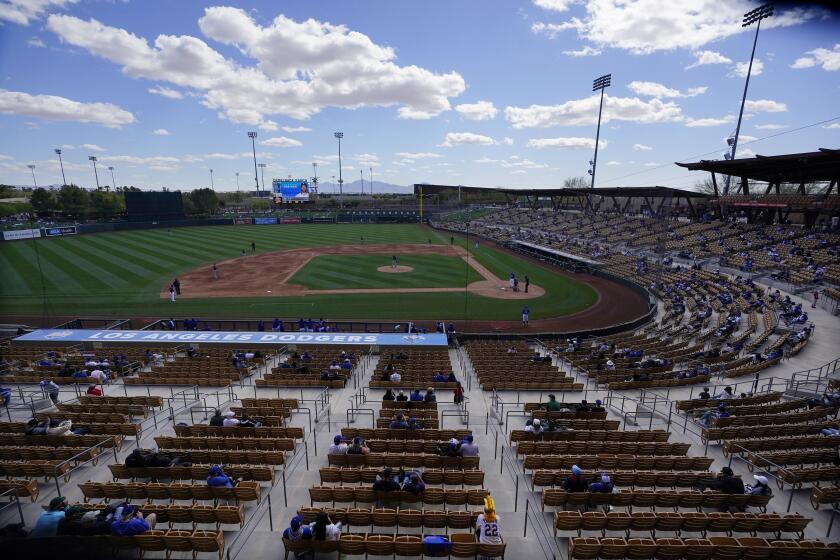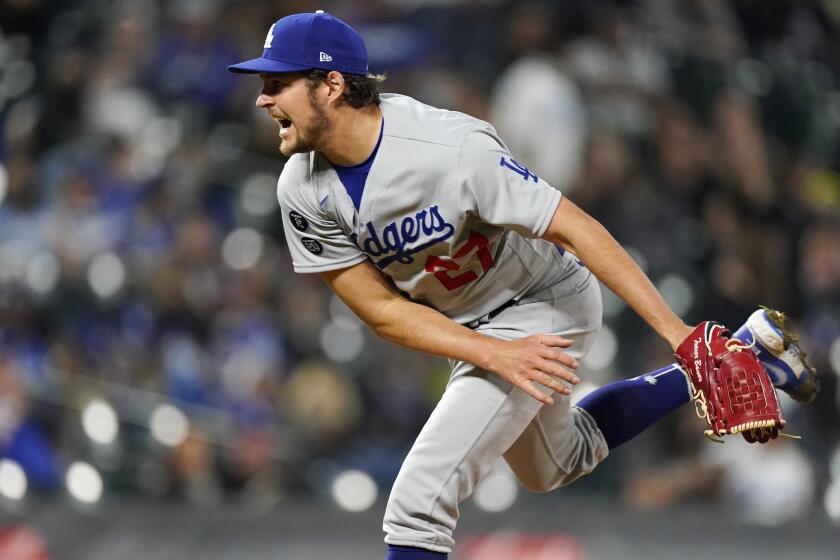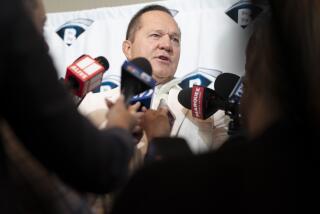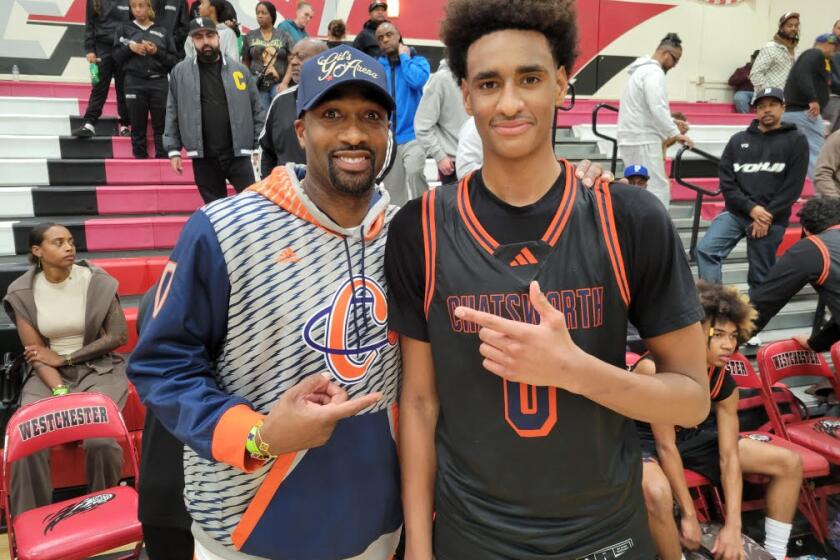Commentary: Angry negotiations leave league divided as Rob Manfred and owners keep players united
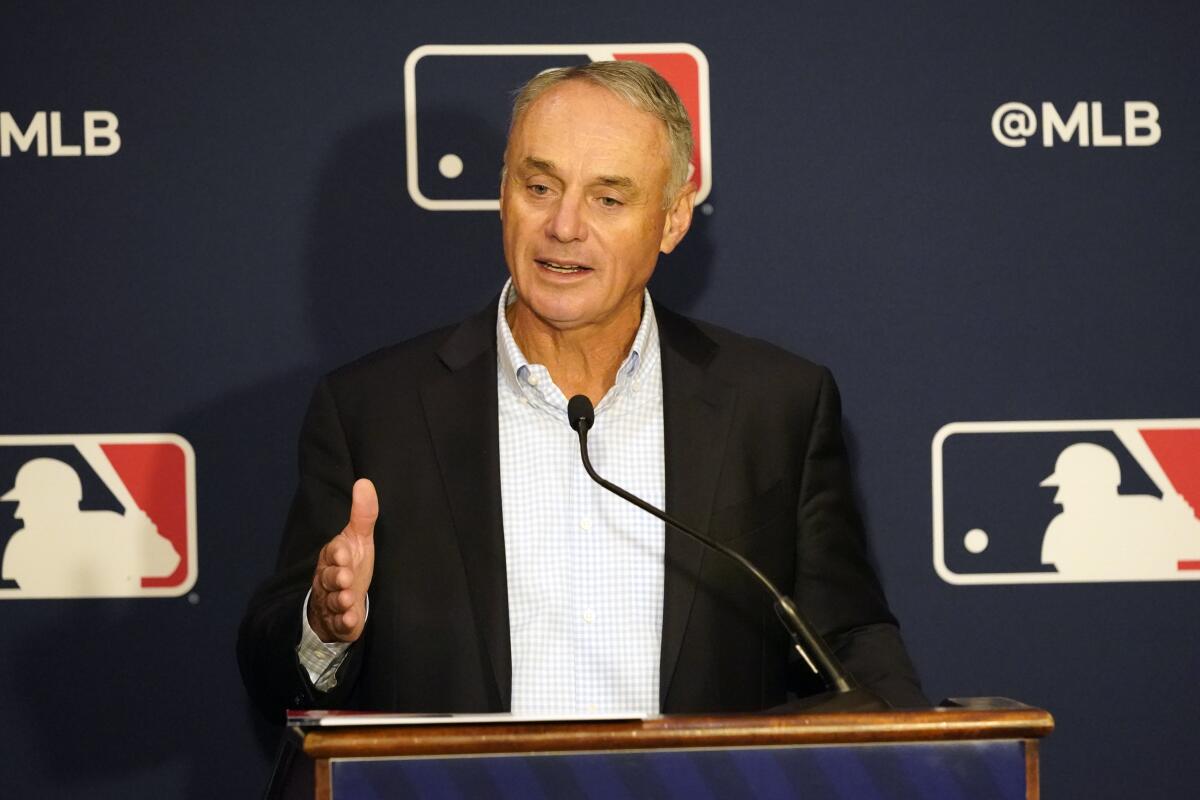
There are 30 owners of major league teams. Whatever differences they might have, they do not tend to air them on social media. For that matter, they do not tend to use social media.
There are more than 1,000 players. We are three months into the owner-imposed lockout, and two weeks past the scheduled start of spring training. All the owners would have needed to do to spread the impression that player unity might be splintering would be to seize upon one or two social media posts along the lines of, “Hey, it’s time to play ball. Let’s take the best deal we can get, and get into camp.”
No such posts. It’s remarkable, really. Three months, and not one player reaching for his phone in an intemperate moment, publicly second-guessing the negotiating strategy of his union.
The Kennedy Commission, an Irvine-based housing advocacy group, warned the city of Anaheim that its proposed Angel Stadium sale would violate the law.
It is fair to say the union has worked hard to keep the players united. However, after an angry afternoon of negotiations Saturday, it is even fairer to say commissioner Rob Manfred and the owners have done more to keep the players united than the union ever could.
The Dodgers would have played their Cactus League opener Saturday. Their season opener now appears in doubt. At this rate, the All-Star game — scheduled for July 19 at Dodger Stadium — might be in doubt too.
Union leadership has spent two years preparing the players for this moment. But whatever players might have heard from union leadership pales in comparison to what they have seen from Manfred and the owners over those two years.
In 2020, before the pandemic shut down the sport, players bristled at Manfred’s handling of the Houston Astros cheating scandal, particularly when he branded the championship trophy as a “piece of metal.”
As the two sides discussed how to restart baseball that summer, Manfred and the owners kept insisting an agreement required players to take less pay if games were played without fans, even though the agreement said no such thing. That prolonged negotiations, and players paid on a per-game basis were upset that a season owners once proposed at 82 games ended up at 60.
Major League Baseball announces spring training games through March 7 have been canceled as commissioner Rob Manfred joins talks to end the lockout.
Last year, when the Cactus League asked MLB to delay the start of spring training by a month while vaccinations became widely available, the owners said they would, but they would not extend the season by a month because the television networks wanted the postseason played in October, not November. How the players read that: Manfred and the owners saw a way to cut a month’s worth of player salaries. It did not happen, but it did leave a sour taste.
On Dec. 2, when the owners imposed the lockout, Manfred wrote in a letter to fans: “We hope that the lockout will jumpstart the negotiations.” The owners did not make another proposal to the players until Jan. 13.
And, two weeks after Manfred suggested the stock market might be a better and safer investment than ownership of an MLB team, the Atlanta Braves — part of a publicly traded company — on Friday released the financial data that teams are not otherwise required to do.
The World Series champion Braves turned a $104-million profit last year, on $526 million in revenue. The Braves’ major league player payroll last year, according to the Associated Press: $148 million.
That means the Braves spent 28% of their revenue on player payroll. In the NBA and NFL, players receive about 50% of revenue.
The NBA and NFL have a salary cap. MLB does not, because the players do not want one. If the Dodgers want to offer Mookie Betts a $365-million contract extension and he wants to sign it, the union does not believe an artificial cap should stop either Betts or the Dodgers.
In the absence of a salary cap, the union agreed to a luxury tax system: Teams can pay what they want, but with penalties above a specified total payroll. Last year, the Dodgers and San Diego Padres were the only teams to pay the tax, but five teams spent within $4 million of the amount that would trigger a tax.
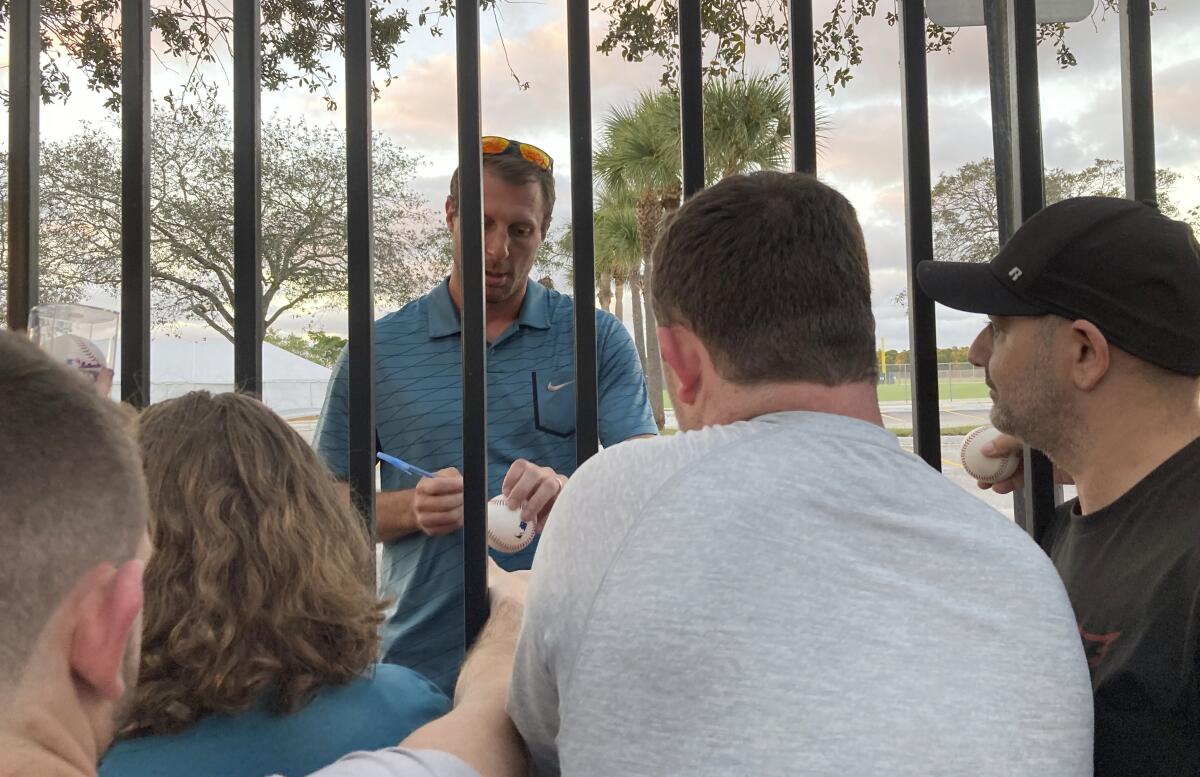
That, to the union, is a de facto salary cap. The union wants to enhance spending by raising the payroll amount that would trigger a tax; the owners want to restrain spending by raising the penalties.
Salary arbitration is the only mechanism by which a third party can determine a player’s salary, and a minority of players are eligible. When the union proposed expanding the number of players eligible for arbitration — the better to get younger players paid something closer to their analytically determined values — the owners said no.
The owners have agreed to pay more to players not yet eligible for arbitration.
The owners this week reportedly suggested trading the institution of a draft lottery for the addition of expanded playoffs. The lottery, a union suggestion to discourage tanking and perhaps encourage higher payrolls, would guarantee the players nothing in revenue. Expanded playoffs would bring the owners an estimated $100 million. The players were less than thrilled with the proposed trade.
If the two sides do not reach a deal by Monday, owners have threatened to call off regular season games. To the players, that represents another example of a way for owners to save money on salaries.
This negotiation has put Manfred’s reputation on the line. Before he was the commissioner, he was the labor lawyer for the owners.
Trevor Bauer’s attorney argues text messages will prove his accuser lied, while her team says releasing records without a pending case is harassment.
“In the history of baseball, the only person who has made a labor agreement without a dispute — and I did four of them — was me,” Manfred said at a news conference two weeks ago. “Somehow, during those four negotiations, players and union representatives figured out a way to trust me enough to make a deal.”
That can happen again. “You’re always one breakthrough away from making an agreement,” he said.
However, his stated negotiating objective in that December letter to fans: “We believe that an offseason lockout is the best mechanism to protect the 2022 season.”
Bud Selig, his predecessor, often is remembered as the commissioner who called off the 1994 World Series. If the owners follow through on their threat, Manfred could be one day away from being the commissioner who called off the start of the 2022 season.
More to Read
Go beyond the scoreboard
Get the latest on L.A.'s teams in the daily Sports Report newsletter.
You may occasionally receive promotional content from the Los Angeles Times.

